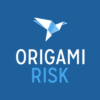Why does international anticorruption matter? What is the scope and impact of the UNCAC? Should we be worried about the UK Bribery Act? How does it compare with legislation in other jurisdictions? What can risk managers do to tackle bribery and corruption?
Just a handful of questions that were answered at the interesting and high-level exchange organized in combination with and hosted by Liedekerke, in Brussels,
Nicolas Argelet, head of the Public International Law Practice Group at Liedekerke, welcomed the audience and introduced the topic and the different keynote speakers.
First, Daria Goldstein, Senior Counsel in the Legal Department of the World Bank, explained that they have made a priority of tackling bribery and corruption because it undermines the economy of countries and as such maintains or provokes poverty. Although there is a United Nations Convention Against Corruption (UNCAC), which is signed and ratified by nearly all countries in the world, this does not mean that it is actually implemented on the same scale. The way bribery and corruption are viewed is a cultural thing. Dealing with it from an economical rather than a political angle lifts the taboo resting on it. Changing cultures takes time and team effort. The message from the World Bank is that poverty can be reduced if economic growth is boosted through elimination of corruption. Therefore, guidelines, procedures and policies are drawn up and put into practice to help detect fraud and sanction it.
Next, Richard Brown and Rob Fell, Lawyers at Travers Smith shed their light on the UK Bribery Act. After a number of huge corruption scandals in the UK, this act was put into force. Although it is a UK Act, it has an important extra-territorial reach, which makes it interesting for foreign parties to know the details. The UK Bribery Act covers 4 offences: paying or offering bribe, receiving a bribe, bribing a foreign public official and the corporate offence of failing to prevent bribery. In particular this last offence touches businesses, as they can be held liable for any act of bribery by any person connected to the company. Belgian businesses “carrying on business in the UK” fall under the UK Bribery Act. UK employees abroad are also in the line of fire.
Where the FCPA has a softer approach and is about public officials, the UK Bribery Act makes no distinction between private or public business.
Moreover, before 2012, self-reporting would lead to civil instead of criminal prosecution. This is no longer the case with the new law. If you do not self-report when you suspect bribery or corruption, this will lead to fines and public procurement bar. You risk a “public flogging in an English court room”.
So far, no cases have come to court yet, so it is waiting for “some heavy duty scalps to be delivered” as these will certainly influence the general stand taken. Obviously, an integrated approach for compliance is needed.
Finally, Hilde De Cremer of KPMG showed how risk management has a role to play in fighting bribery and corruption. In today’s reality, bribery and corruption lurk everywhere: they can be in your own organization, in the foreign countries you operate with, in the supply or sales channels, well camouflaged in your books, …
The most effective way to deal with it is the implementation of a comprehensive anti-bribery and corruption compliance programme, which should be tailored to accommodate individual risk profile and resources. Leadership, Risk Assessment, Standards and Controls, Training and Communication, and Oversight are the five essential elements of such a compliance programme. When a business can demonstrate that is has a robust compliance system, that is regularly put in use and updated, it can help in the protection against prosecution for bribery and corruption, as was the case with the Morgan Stanley scandal in China. A weak link in your programme could be your third party intermediaries. Make sure you know who they are, investigate and remember you might have to demonstrate at some stage that you took all the necessary steps to avoid bribery and corruption.
A lively Q&A session followed. As a closing remark, one might say that in some countries, bribery and corruption is a “way of life” and that – in the long term – diplomacy might be the right approach to come to a change in culture and mentality.
An excellent cocktail followed the seminar with plenty of opportunities to further exchange ideas.
BELRIM wishes to thank all parties involved, including Christel Van den Eynde, Partner at Liedekerke, who prepared this exchange with Carl Leeman (Katoen Natie).






